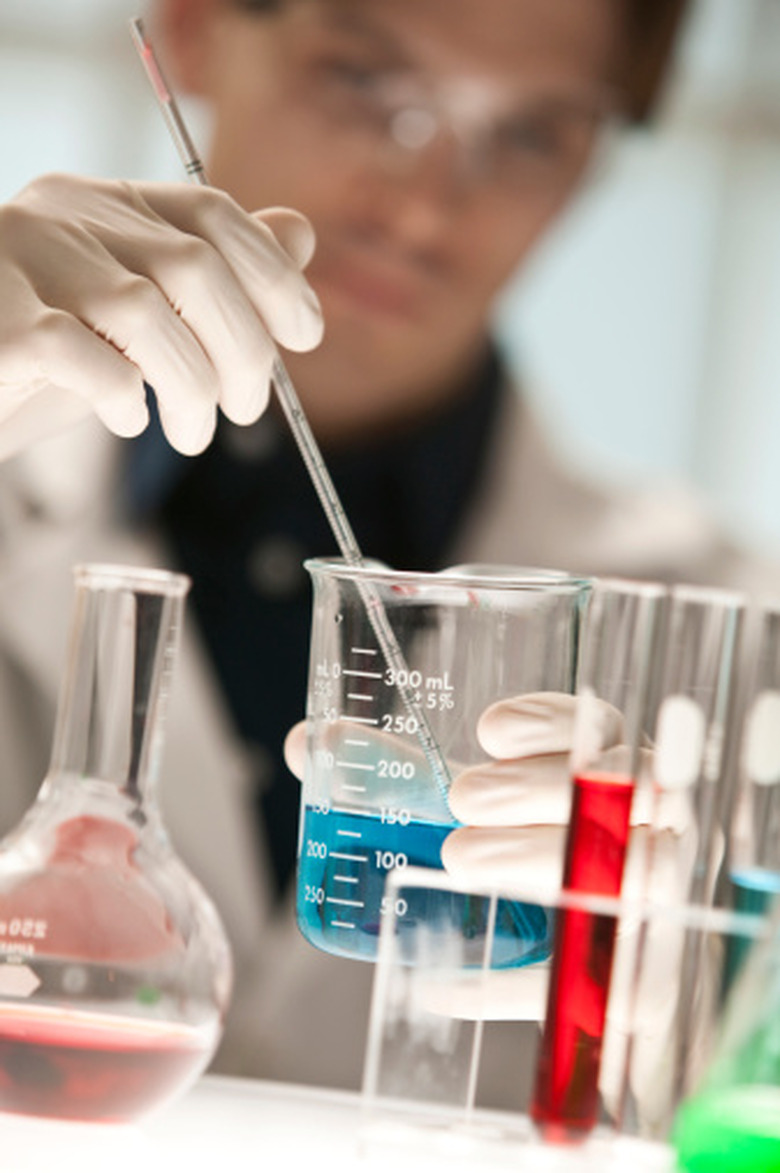How To Calculate QCAL
Hess's Law describes the conservation of energy in chemical reactions, stating that the heat flow of a reaction is equal to the sum of the heat flow of its composite reactions. A calorimeter measures the heat flow by creating a closed-system that contains the reaction. Ideally, a reading from the calorimeter would show the exact change in heat that a given reaction requires; however, the calorimeter absorbs an amount of heat from the system. Calculating the Qcal, the heat of the calorimeter, allows you to adjust your readings to determine the total heat flow of a reaction.
Find the specific heat (Ccal) for the calorimeter.
Step 1
Apply a measured amount of heat, using an element such as a Bunsen burner with a known energy/second rate, to the calorimeter.
Step 2
Record how many seconds pass from when you apply the heat to the calorimeter until the temperature of the calorimeter increases by one degree Celsius.
Step 3
Multiply the energy/second rate of the element by the number of seconds you applied the heat to find Ccal expressed in energy/degree Celsius.
Calculate Qcal
Step 1
Measure the change in temperature in degrees Celsius that occurs during the reaction inside the calorimeter.
Step 2
Multiply Ccal (energy/degree Celsius) by the change in temperature that occurred during the reaction in the calorimeter. For example, if the calorimeter required 3.5 Joules to increase one degree Celsius and the reaction increased the calorimeter's temperature by 5 degrees Celsius, you would multiply 3.5 Joules/degree Celsius by 5 degrees Celsius.
Step 3
Record the product of Ccal and temperature change as the total Qcal. In the example, Qcal equals 17.5 Joules, meaning that the calorimeter absorbed 17.5 Joules released by the reaction.
Cite This Article
MLA
Butner, Sean. "How To Calculate QCAL" sciencing.com, https://www.sciencing.com/calculate-qcal-8636243/. 13 March 2018.
APA
Butner, Sean. (2018, March 13). How To Calculate QCAL. sciencing.com. Retrieved from https://www.sciencing.com/calculate-qcal-8636243/
Chicago
Butner, Sean. How To Calculate QCAL last modified August 30, 2022. https://www.sciencing.com/calculate-qcal-8636243/
